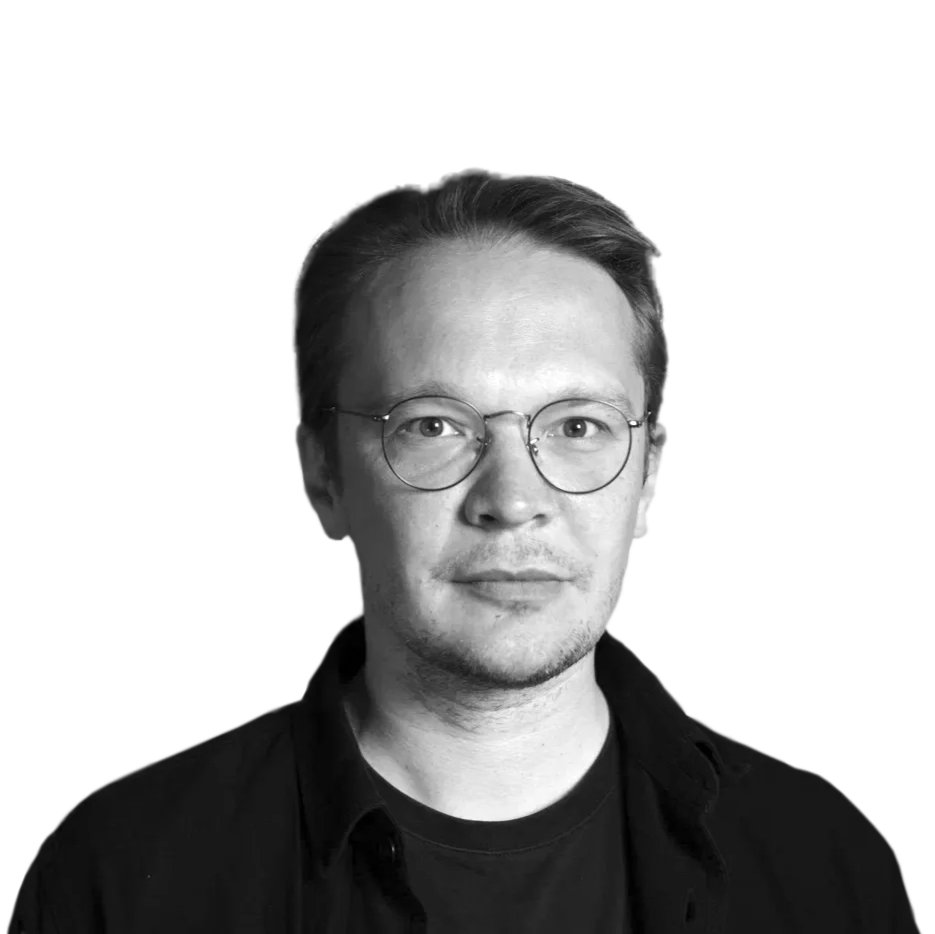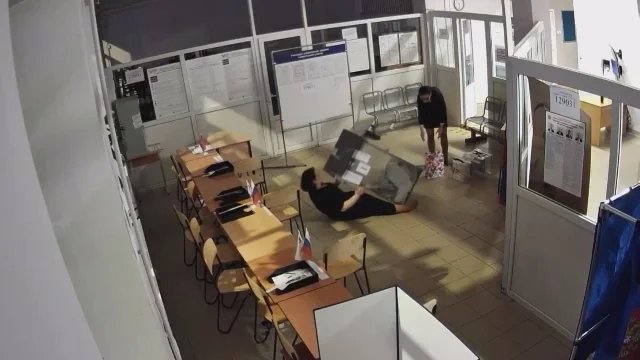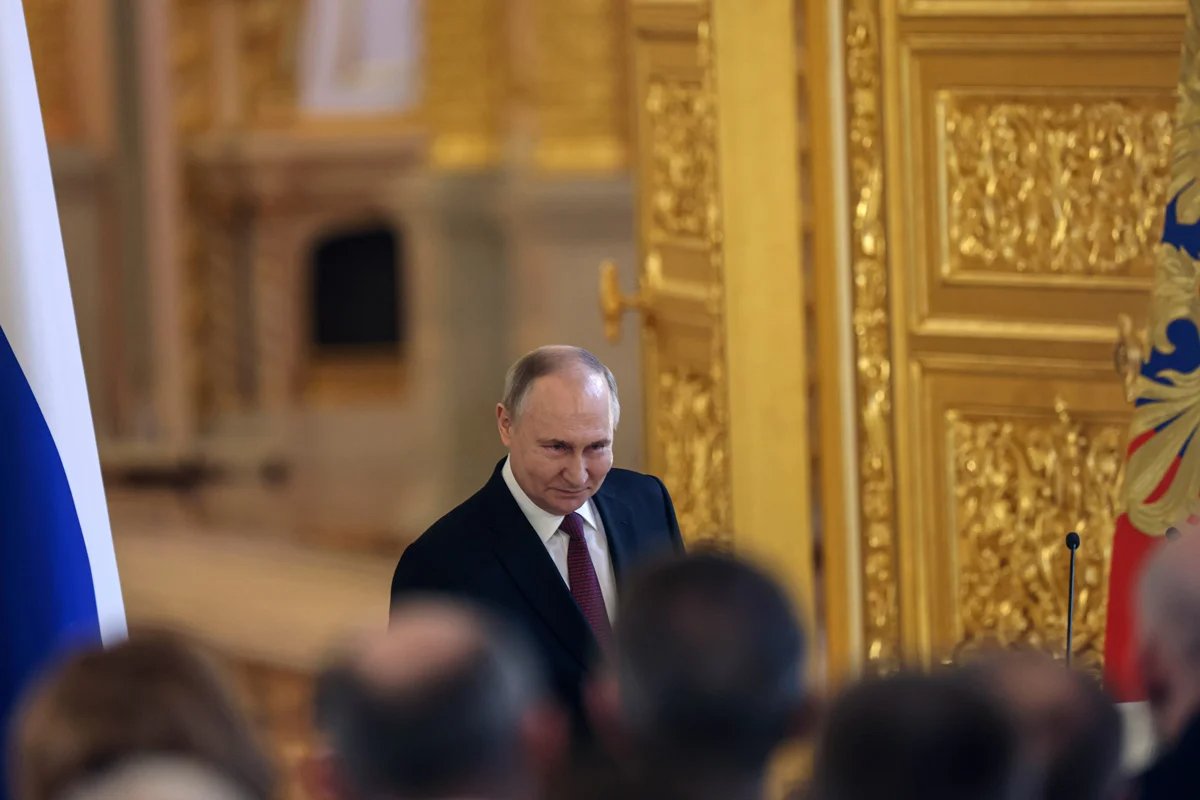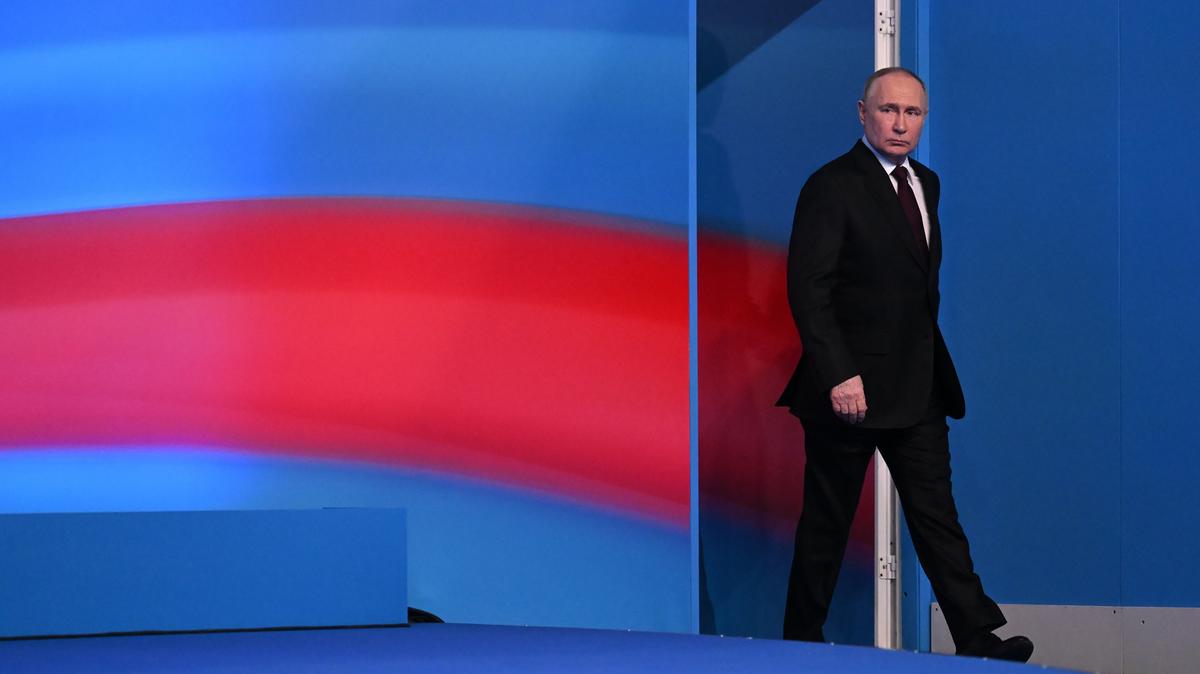
Kirill Martynov
editor-in-chief of Novaya Gazeta Europe
Unlike Athens, ancient Sparta was not a democracy, but it did have something akin to elections. Members of the council of elders, each of whom was at least 60 years old, were elected by people shouting their support. The louder the endorsement, the more trustworthy the statesman.
In wartime Russia, the procedure, known as acclamation, has been raised to a fine art form. Only our council of elders consists of a single old man who has been there for far too long.
The procedure that went ahead in Russia earlier this month was an acclamation, not an election.
There was no way for Russia not to shout its approval during the three-day Spartan political gathering organised by the Central Election Commission (CEC).
For this acclamation, even the pretence of a contest was ruled out in favour of national adulation. The role of the courtiers — CEC Chair Ella Pamfilova, State Duma chairman Vyacheslav Volodin, the leaders of the parliamentary parties and even the three candidates “challenging” the incumbent — was to be the first and loudest in shouting their heartfelt support.
A video recording from a polling station in St. Petersburg has become the leitmotif of this sham election. In it, music teacher Irina Minyakova can be seen crawling on her knees to add a stack of ballots to a transparent box. Her kneeling was only meant to cover up the crime she was committing, but ended up saying more than a thousand words. The symbolism is completed when Irina Borovleva, a history and social studies teacher, joins Minyakova. Borovleva helps Minyakova tilt the ballot box to mix up the stack of ballots for Putin that had landed in it in a suspiciously neat and tidy way.

A screenshot of video footage from a St. Petersburg polling station. Photo: ASTRA / Telegram
A few hours later, election expert Ivan Shukshin began examining CEC statistics, which this year were carefully hidden away in the bowels of official websites. Working with data from 97% of polling stations, not including most of those in occupied Ukrainian territory, several teams of researchers came to the same conclusion: at least 22 million votes for Putin were fake. These figures didn’t include Moscow, where electronic voting made access to any real data impossible. Had they done so, even more fake ballots would have been revealed.
There was no enthusiastic crowd at the Kremlin to congratulate the dictator on his historic victory. There was no holiday atmosphere. There was no hope for the future.
But there is a sinister Shpilkin comet flying over Russia. If you plot a graph that ties the number of votes cast for Putin to turnout, then a comet tail of stuffed ballots stretches out behind the nucleus of regular votes. Pamfilova is destroying Russia with that tail.
It was a historic victory over an opponent who couldn’t compete for a very good reason. Before the elections, Putin’s best known critic, Alexey Navalny, was killed in an Arctic prison, and the dictator finally deigned to speak his name. None of the other candidates opposed the war. The ones that wanted to weren’t allowed to run lest they distract the jubilant masses with their scepticism. The three Achilles chasing our turtle officially received $5.5 million dollars each for their performance in the spectacle for “gaining a percentage of popular support”. The youngest of the three, Davankov, had to justify himself publicly and ritually swear allegiance to the war, because even though the turtle remained way out in front, hadn’t he been disloyally fast?
The electoral procedure proved that there is no mass support for the war. If Russia really were populated by the citizens imagined in Putin’s propaganda, he would win a real election easily, with no need for ballot-box stuffing. Isn’t he a military leader? He should win on his historical importance alone! But he doesn’t have the popular support of his people. A pro-war rally in Russia can barely muster a few hundred people without bussing in the belligerent masses to prop up the feeble display.
But we did see just how many Russians oppose the war. They supported Boris Nadezhdin, who proposed ending the war in Ukraine. The same people, full of rage and despair, shouted “No to war!” at Navalny’s funeral. They didn’t join in with the Russian acclamation, recognising it for the sham it was. Differentiating between Russians abroad and those at home is an attempt to divide us. But all of us protested against the dictatorship. “Every household of my peoples, both at home and overseas,” as Britain’s King George VI said in his speech declaring war against Germany; a moment that, unnervingly, increasingly resembles our own current predicament.
At this point, it is almost impossible to know just how much support Putin actually received in the election due to the sheer scale of the fraud. His dictatorship is founded upon fear and violence; these are also, coincidentally, two key pillars of his political leadership. When the violence lessens and people are no longer afraid, the 75 million people who supposedly voted for the dictator will be impossible to find.
There is a problem in the way we address Putin. What do we call a man whose presidential power, won in an election six years ago, expires in May?
The Kremlin was already making a mockery of the constitution then, finding a loophole of no more than two consecutive terms. We recently discovered that volunteers had taught AI how to count people voting in the 2018 presidential elections from video footage and we now know that Putin wasn’t elected then either, never mind this time.

Putin at the Kremlin in Moscow, 20 March, 2024. Photo: Sergey Ilnitsky / EPA-EFE
This time round, some European countries will refuse to recognise Putin as president. But almost everyone, not just to the West, knows that Putin’s rule is illegitimate. The international community will stop short of rejecting Putin as leader, though, for purely pragmatic reasons. You need to keep lines of communication open to a man with nuclear weapons at his disposal.
So we’ll have to work out what to call the “president” ourselves.
In independent, uncensored Russian media, the “president” is living out his last days. Very soon, using the title will identify the user as a propagandist, as is already the case with Belarusian “president” Alexander Lukashenko.
It is essential we keep a close eye on Pamfilova and her cronies, too. They hold sham elections, but still somehow end up protected by the same law that purports to punish usurpers who rob people of their democratic right to vote. However, there is a 10-year statute of limitations on the creation of a criminal organisation, so maybe we’ll see Pamfilova sewing mittens in a prison cell one day after all.
Every Russian schoolchild knows what to expect after the election: war, poverty, and terror or “partial mobilisation, tax optimisation, and suppression of extremist activity”, as Putin calls them. This is a dictator, whose audience has given him rapturous applause, a standing ovation. He has us in his sights.
Join us in rebuilding Novaya Gazeta Europe
The Russian government has banned independent media. We were forced to leave our country in order to keep doing our job, telling our readers about what is going on Russia, Ukraine and Europe.
We will continue fighting against warfare and dictatorship. We believe that freedom of speech is the most efficient antidote against tyranny. Support us financially to help us fight for peace and freedom.
By clicking the Support button, you agree to the processing of your personal data.
To cancel a regular donation, please write to [email protected]

